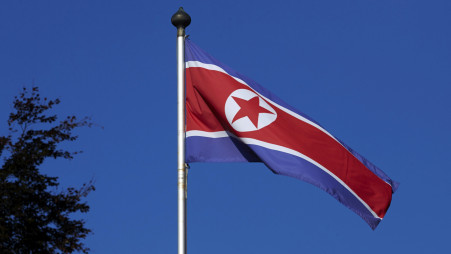North Korea has conducted an underwater nuclear weapons system test in a protest against the joint military exercises conducted by South Korea, the United States, and Japan this week, according to state media KCNA on Friday.
The test, carried out by the defence ministry’s think tank and involving the “Haeil-5-23” system (North Korea’s designation for its nuclear-capable underwater attack drones), occurred in the waters off the country’s east coast. The specific date of the test was not provided in the report.
An unnamed spokesman from the North Korean defense ministry accused the United States, South Korea, and Japan of becoming “frantic” with military exercises and issued a warning of “catastrophic consequences.”
The navies of the three countries held regular drills until Wednesday, alongside the U.S. aircraft carrier Carl Vinson, to enhance their responses to evolving nuclear and missile threats from Pyongyang.
In a statement reported by KCNA, the North Korean ministry spokesman said, “Our army’s underwater nuke-based countering posture is being further rounded off, and its various maritime and underwater responsive actions will continue to deter the hostile military maneuvers of the navies of the U.S. and its allies.”
While North Korean state television has previously aired atmospheric explosion tests, the reported underwater weapon has not been independently verified. The drone system, named “Haeil,” meaning tsunami, was reportedly first tested in March 2023. According to state media, its purpose is to execute sneak attacks in enemy waters, destroying naval strike groups and major operational ports by creating a large radioactive wave through an underwater explosion.
The recent underwater test follows North Korea’s launch of a new intermediate-range, solid-fuel hypersonic missile, condemned by Washington, Seoul, and Tokyo as a serious violation of U.N. Security Council resolutions.
On Thursday, the nuclear envoys of the three allies gathered in Seoul, condemning not only the recent actions by North Korea but also its arms trade with Russia and increasingly hostile rhetoric. Coincidentally, North Korea’s foreign minister visited Moscow and met with President Vladimir Putin during the same period.
(Input from Reuters)














